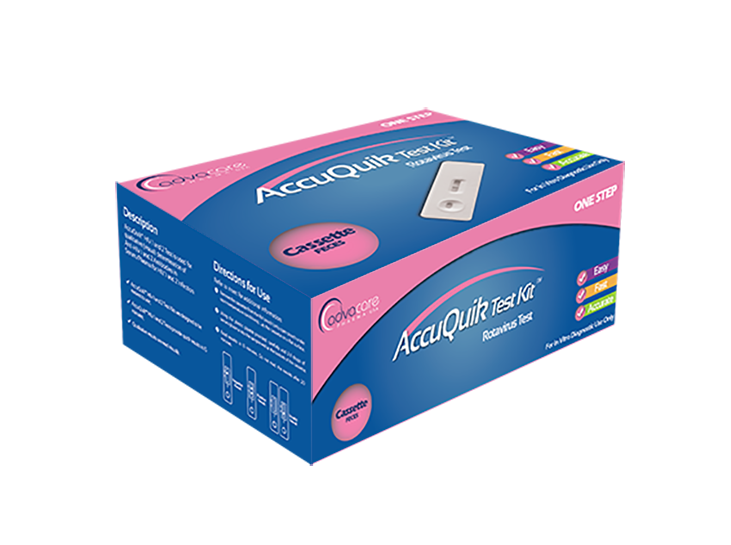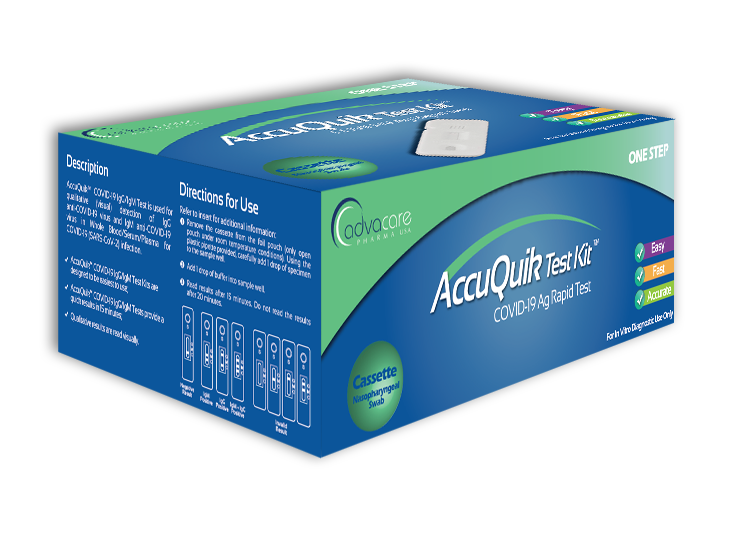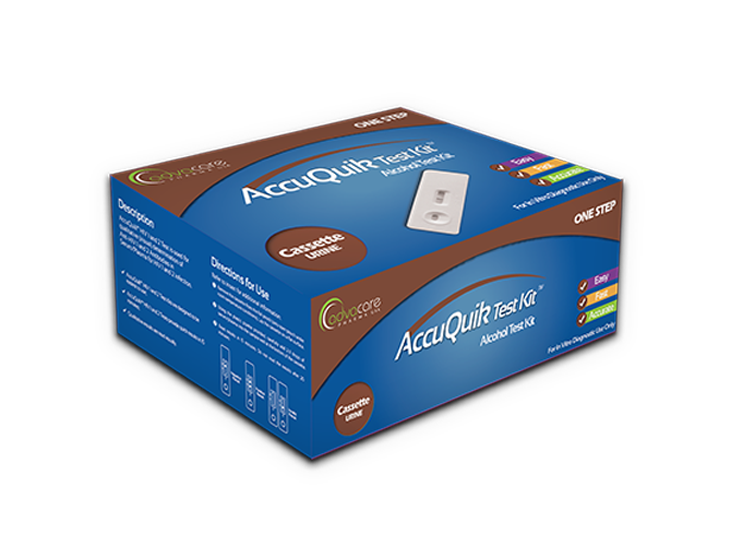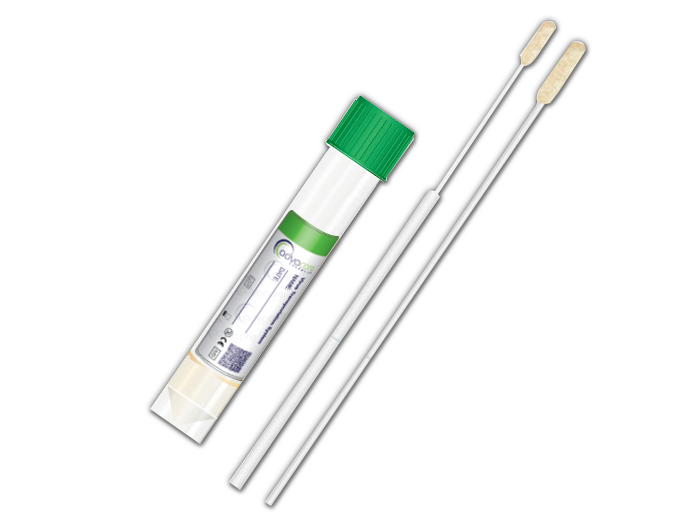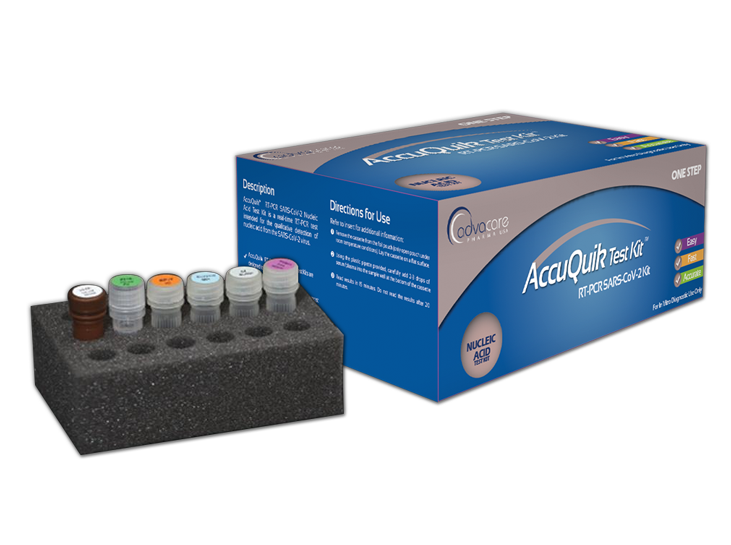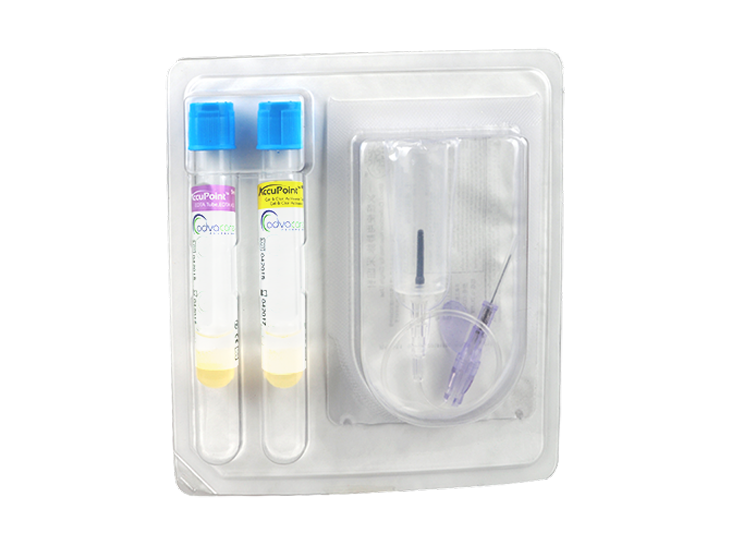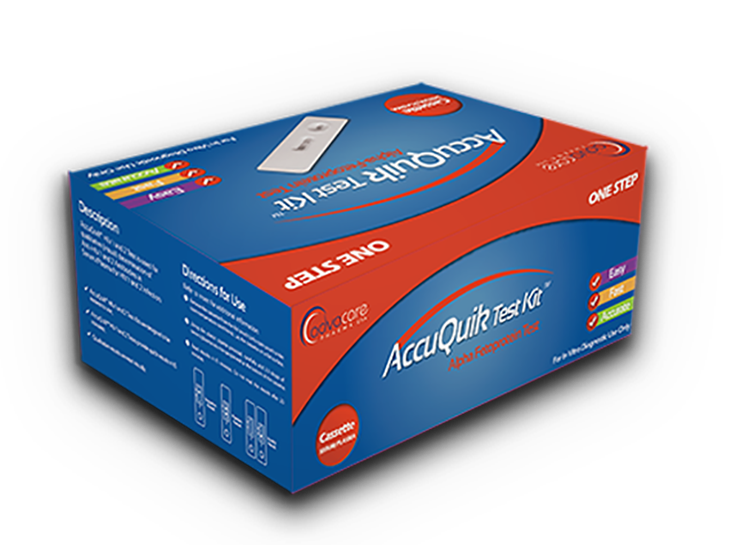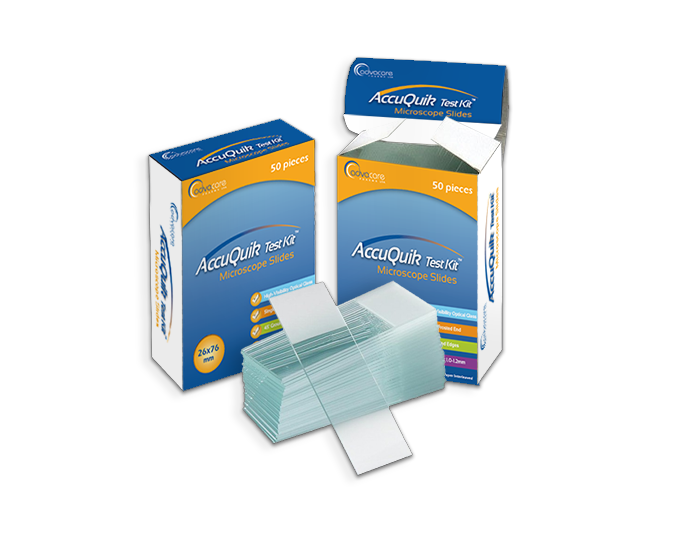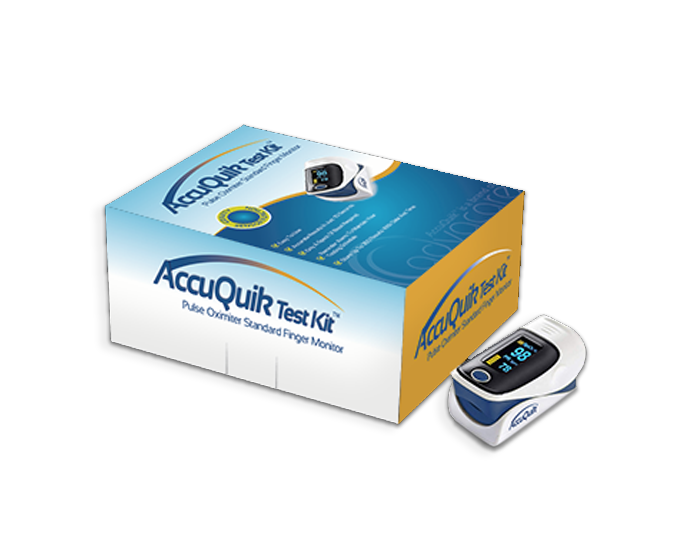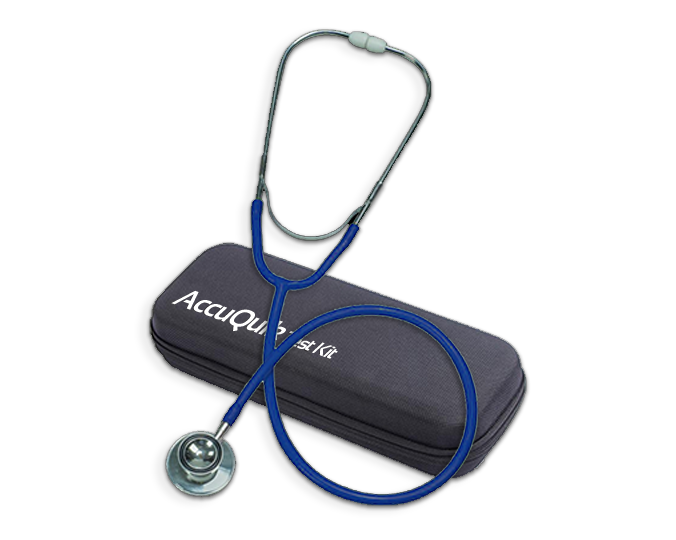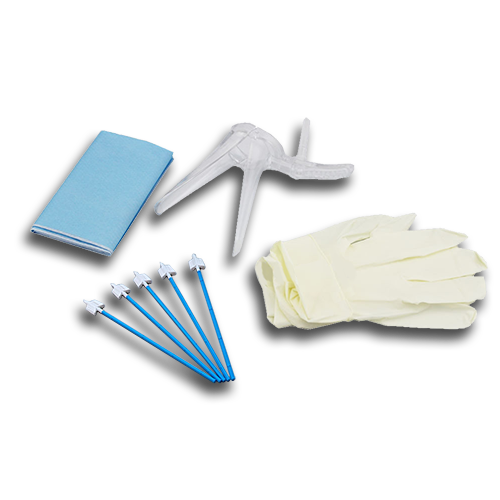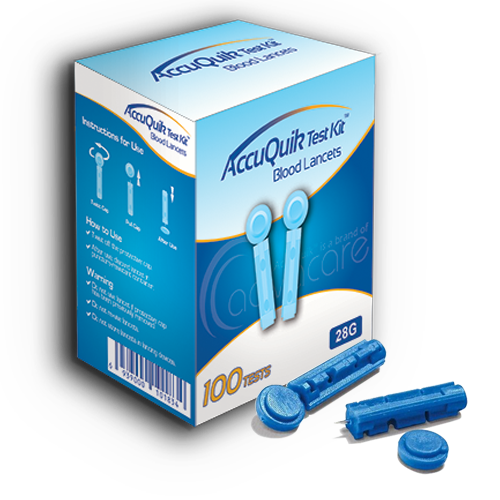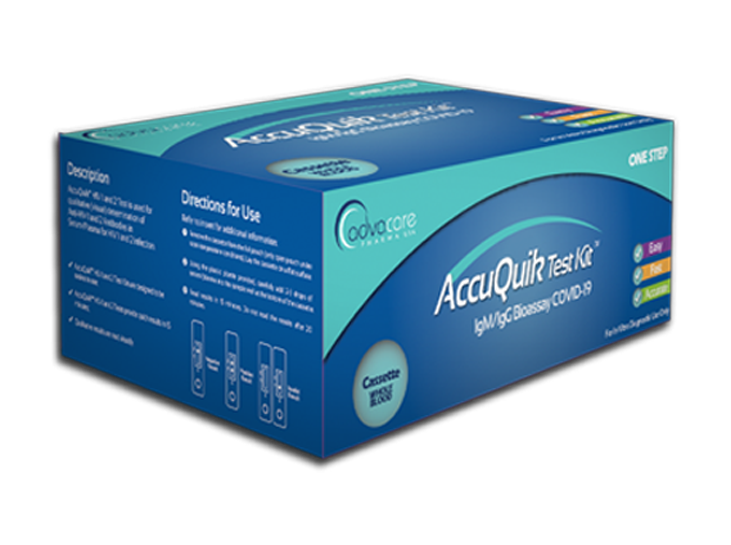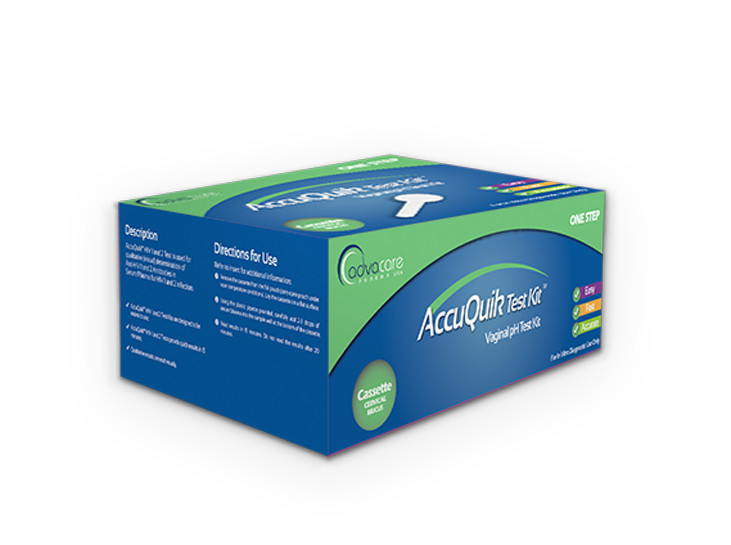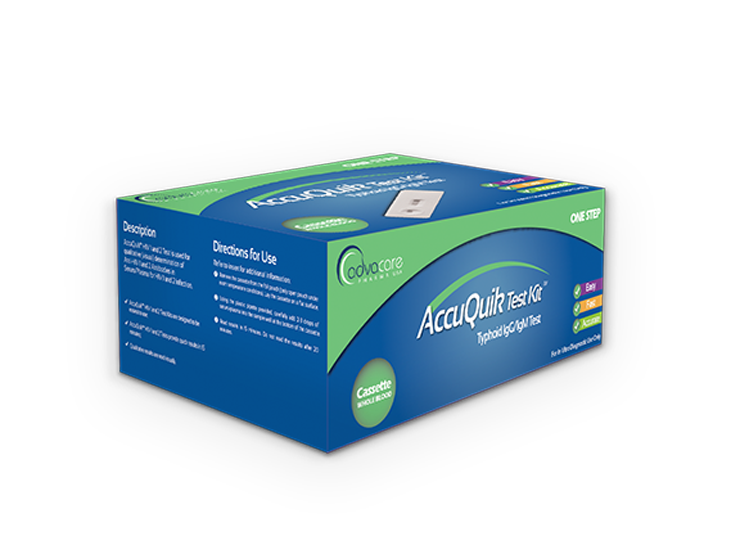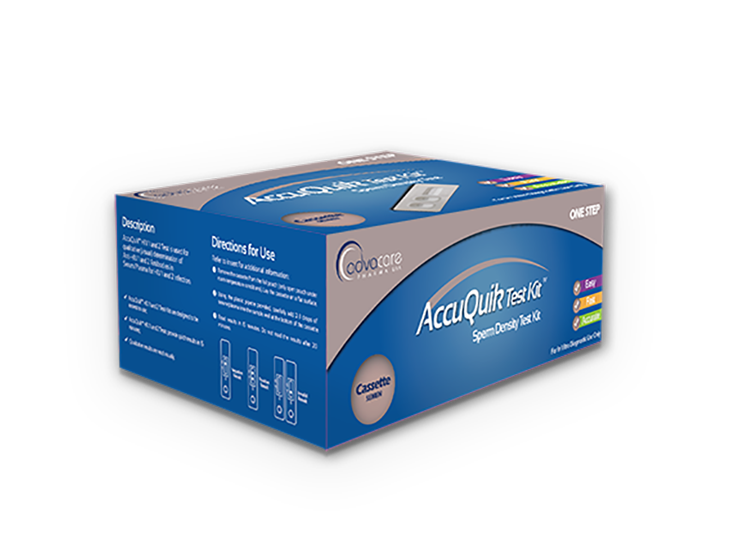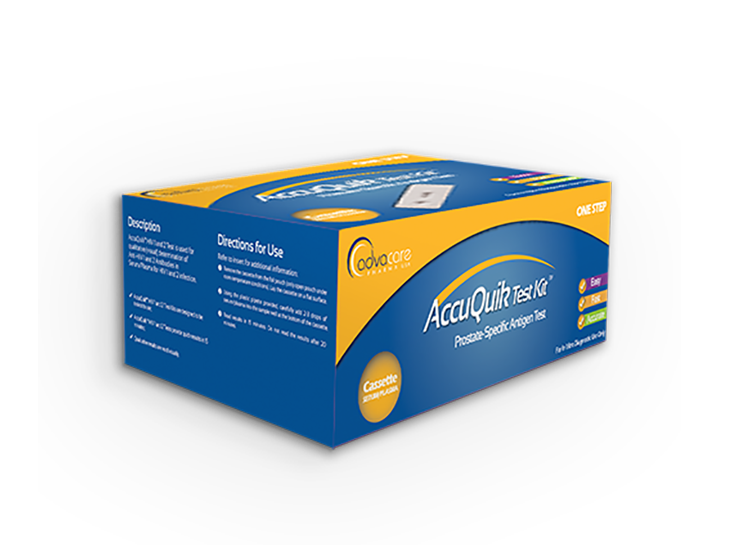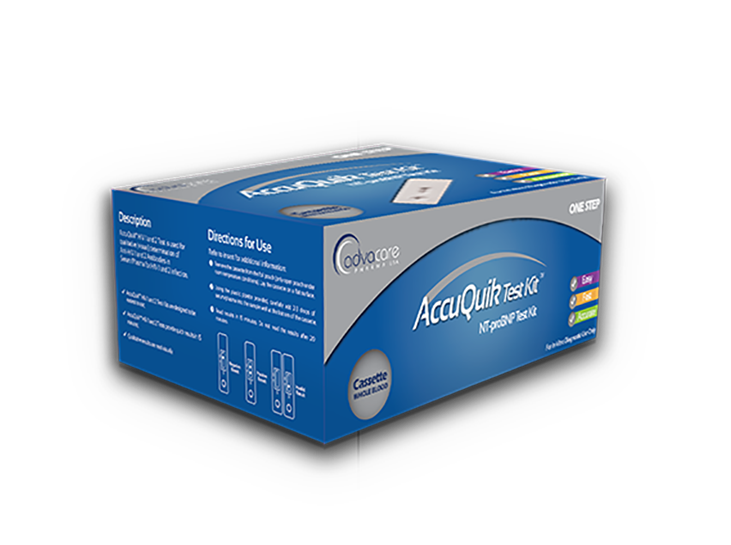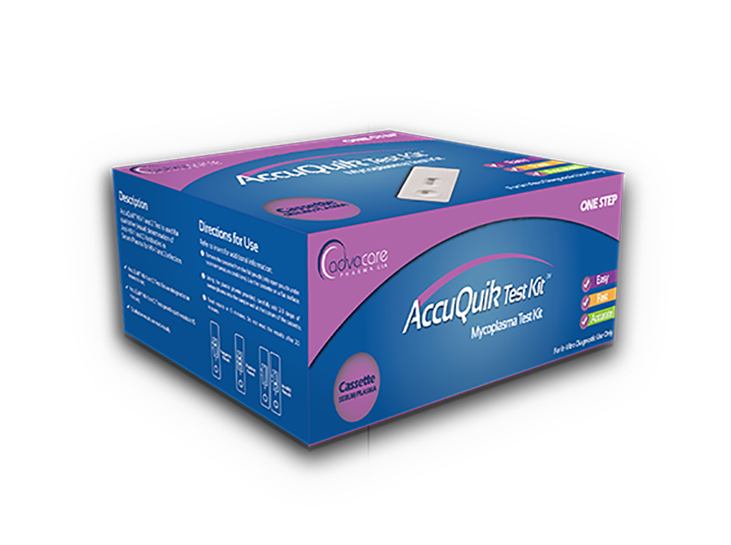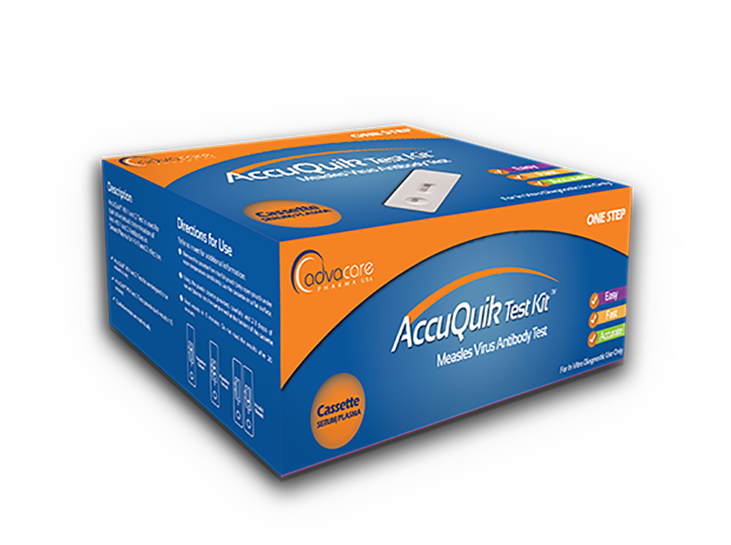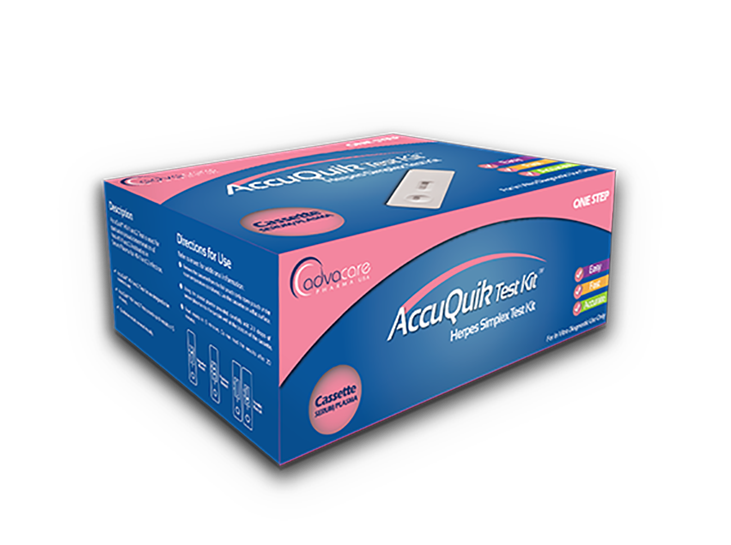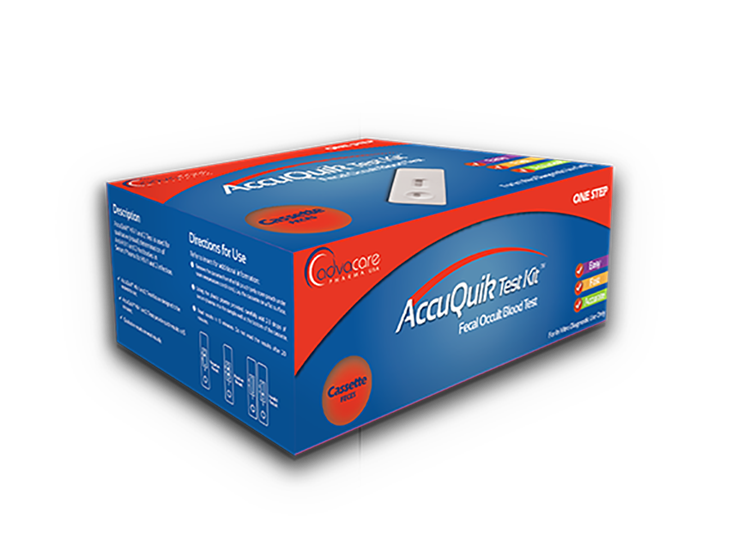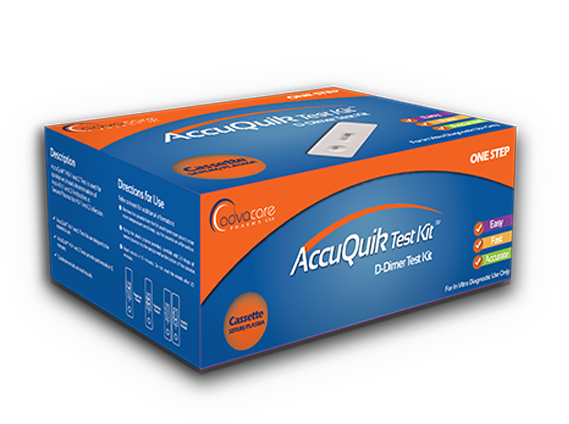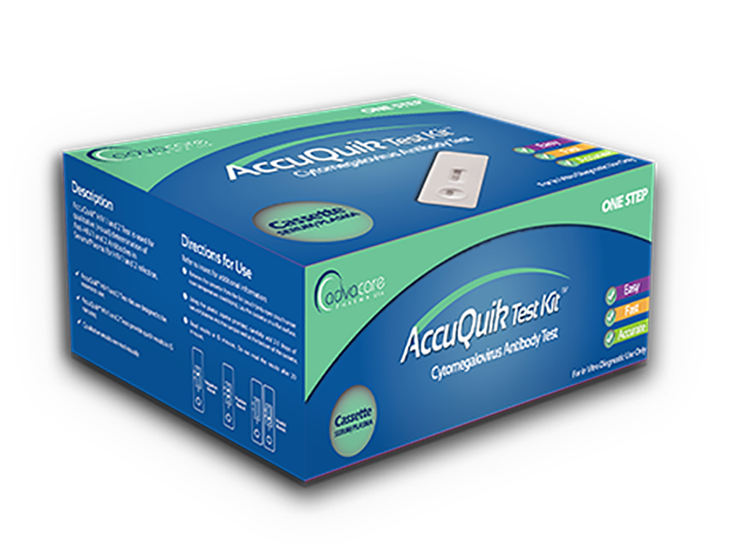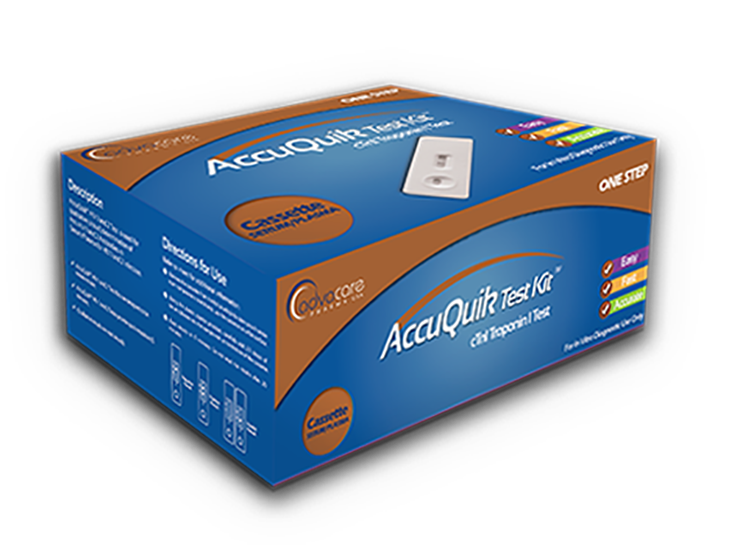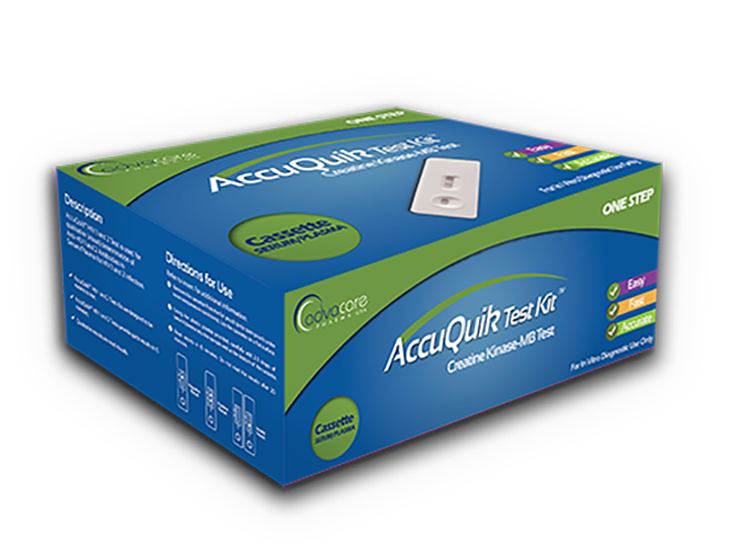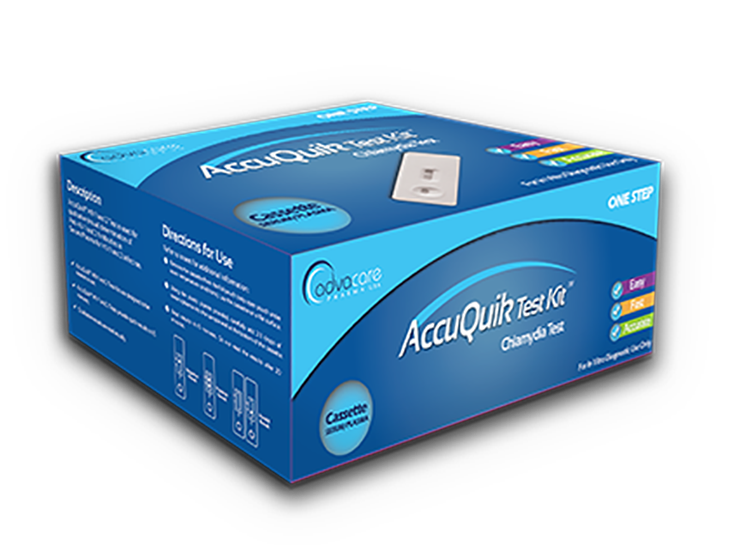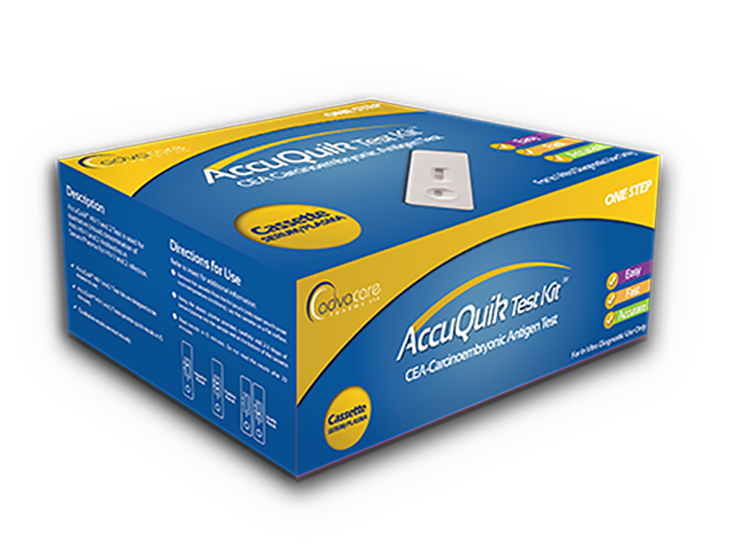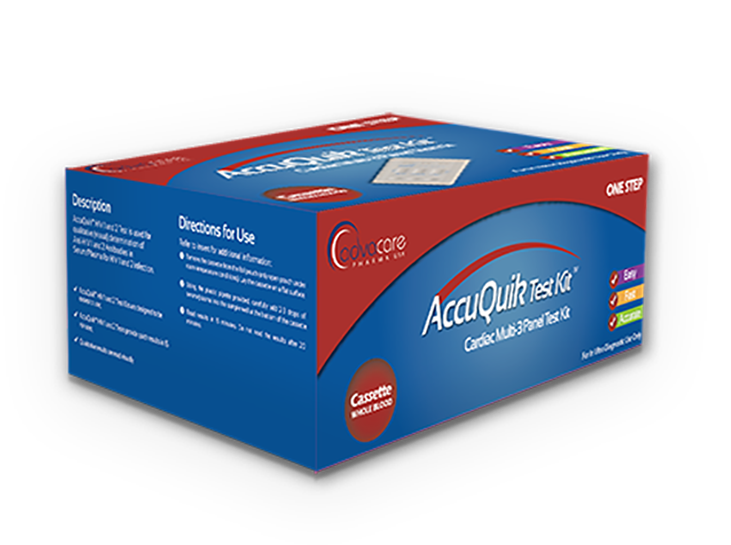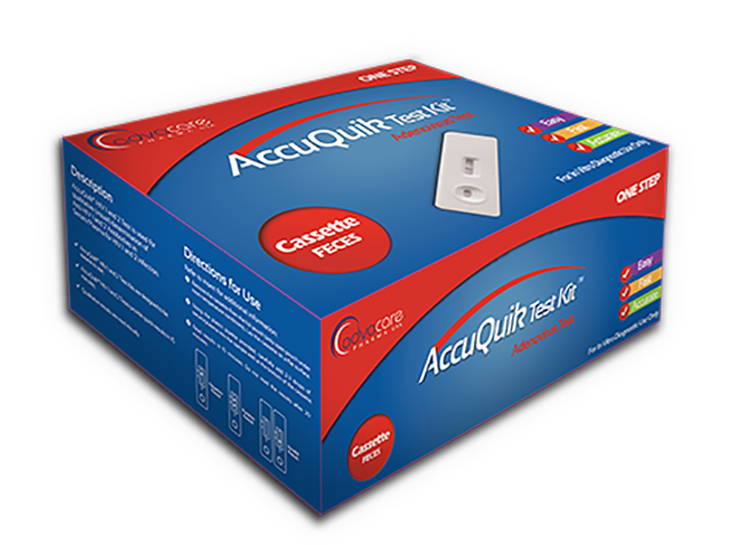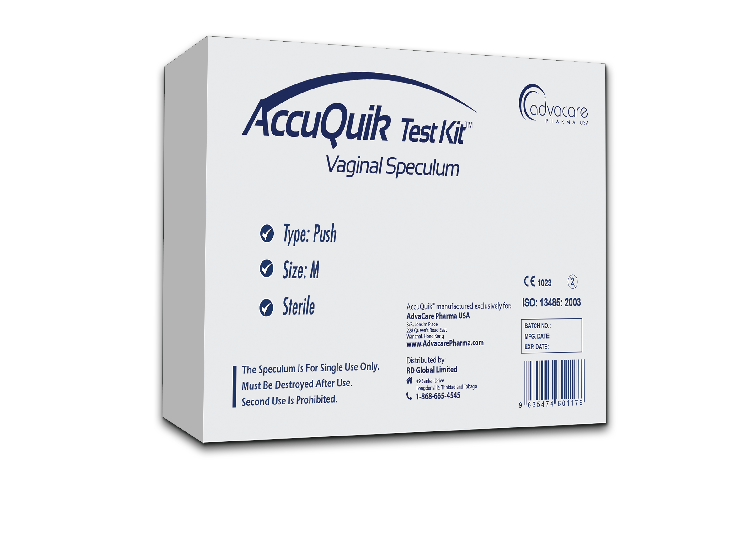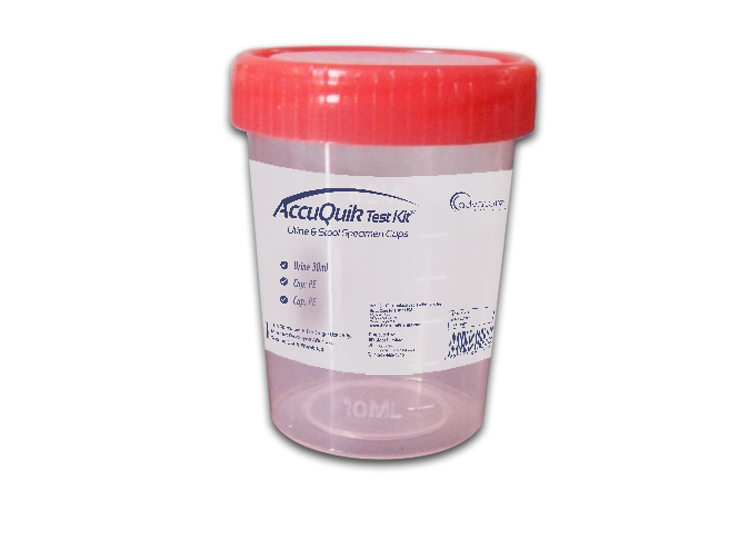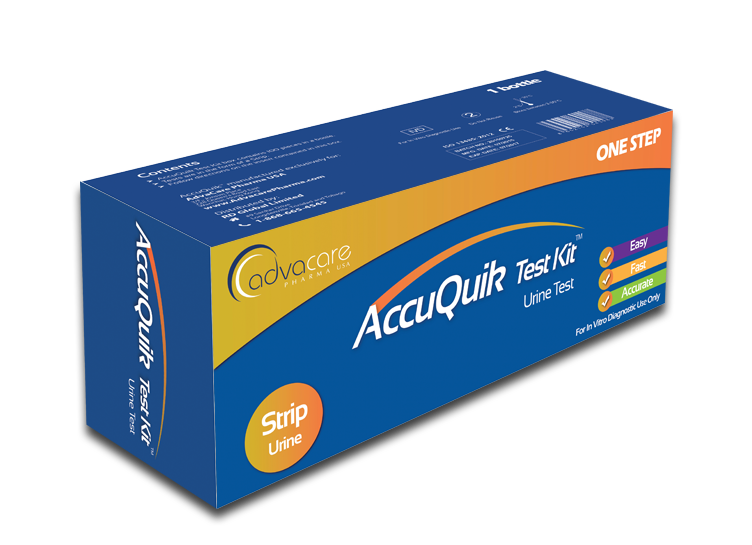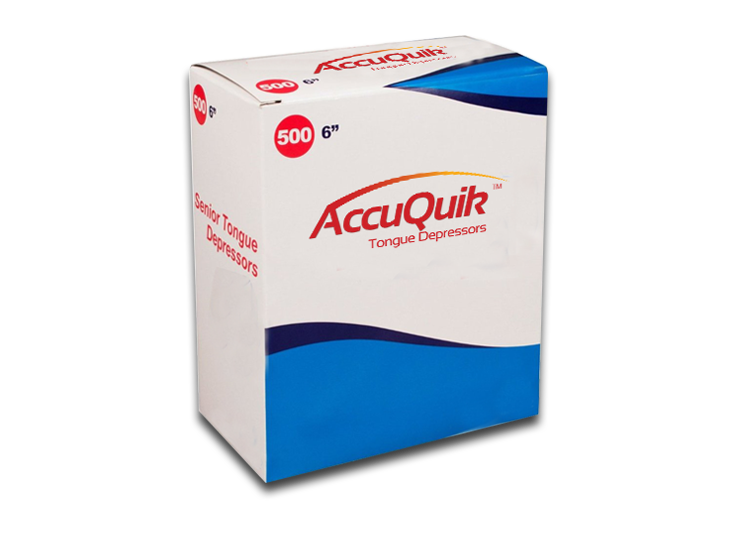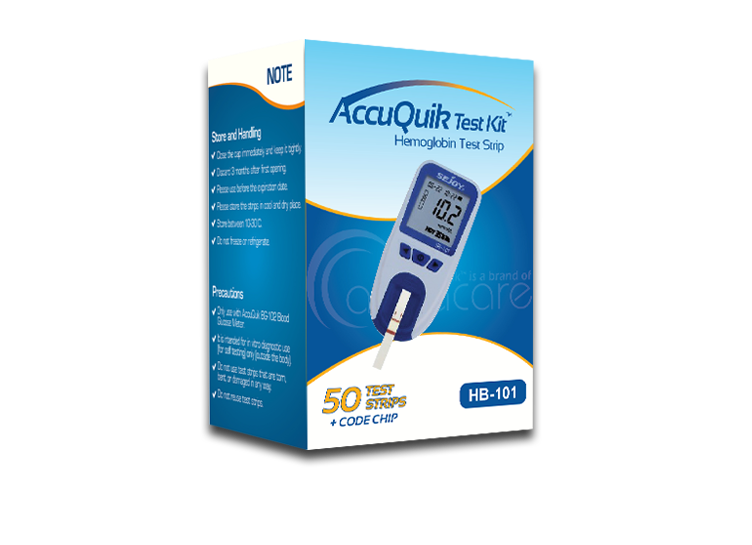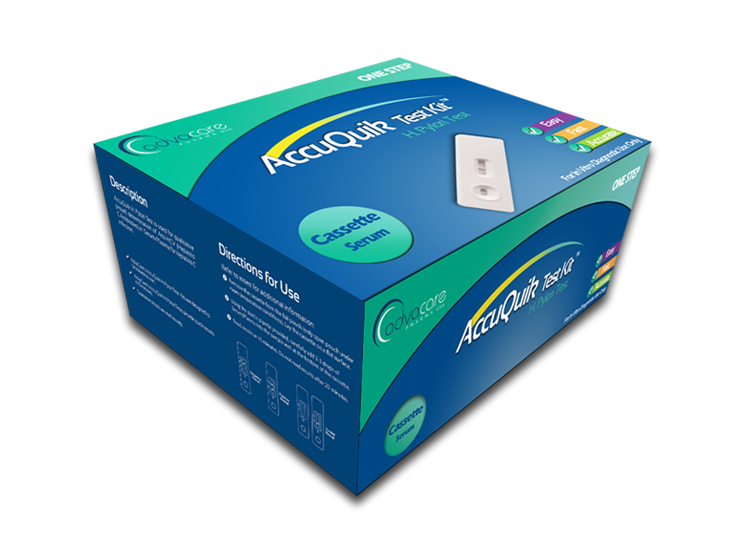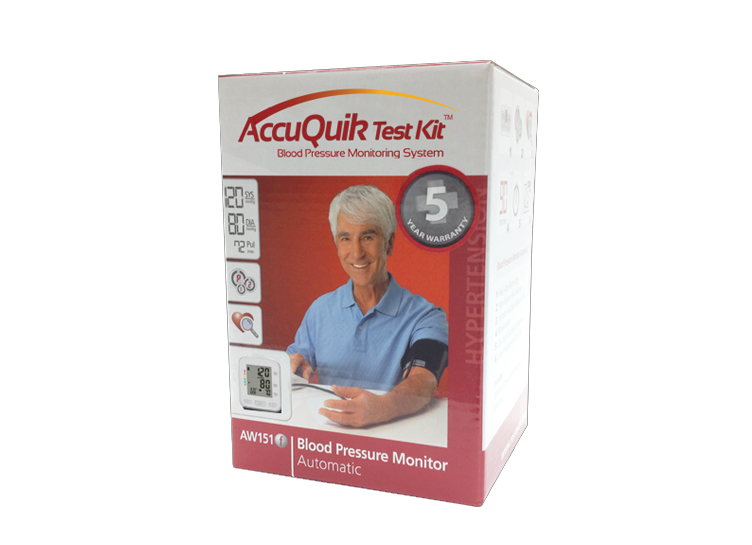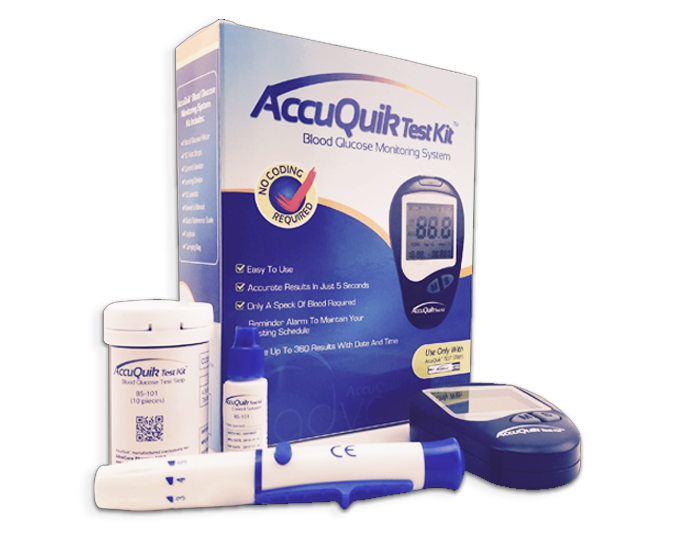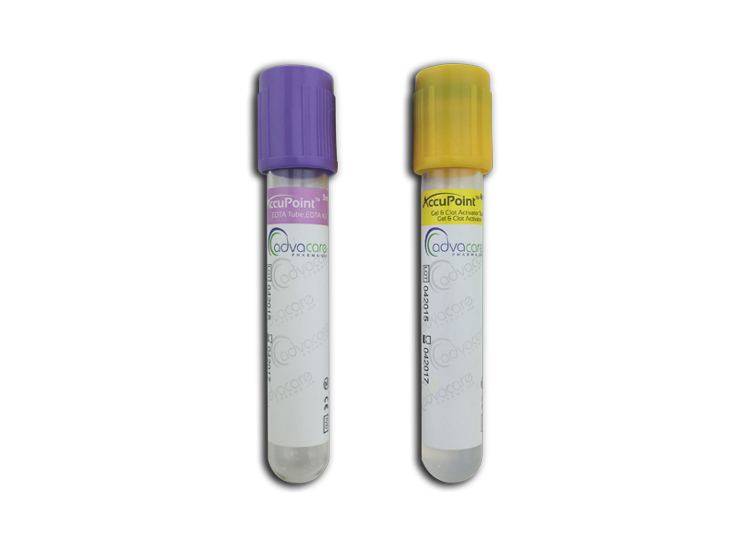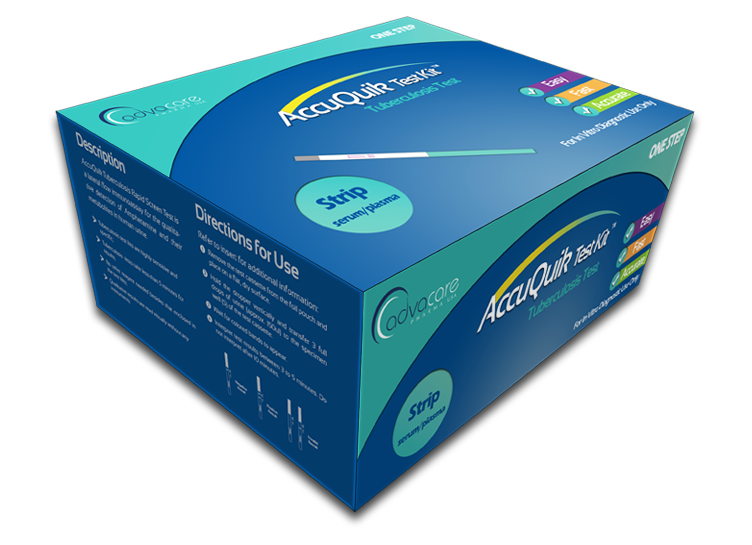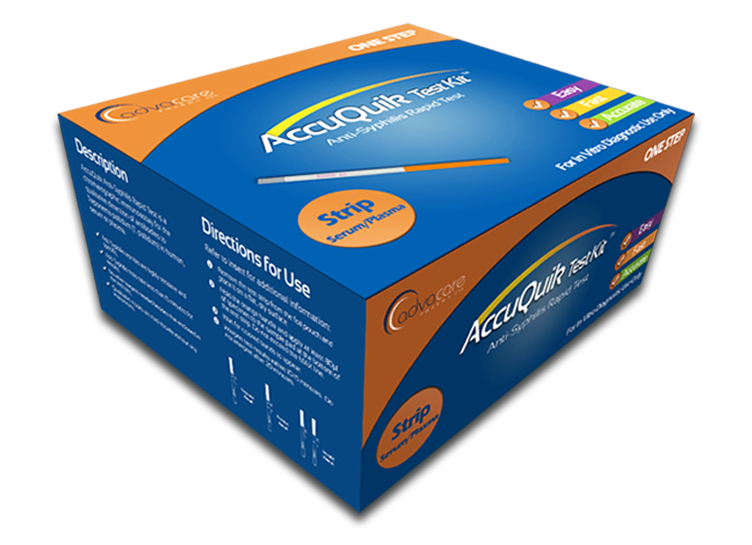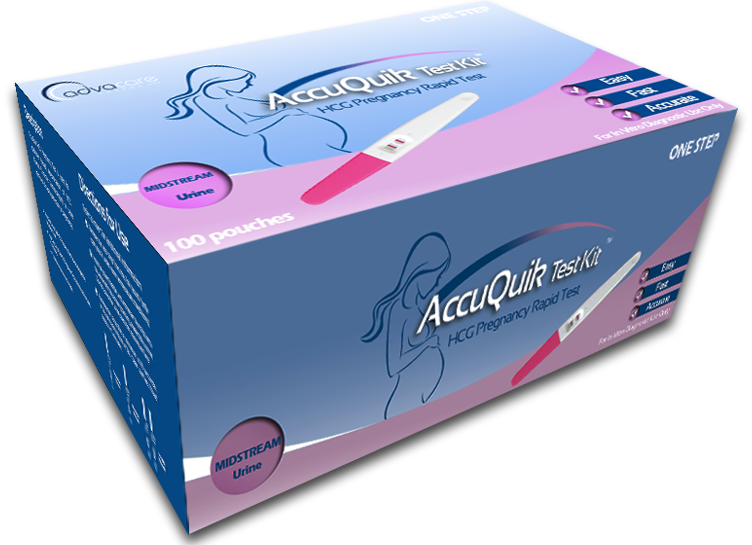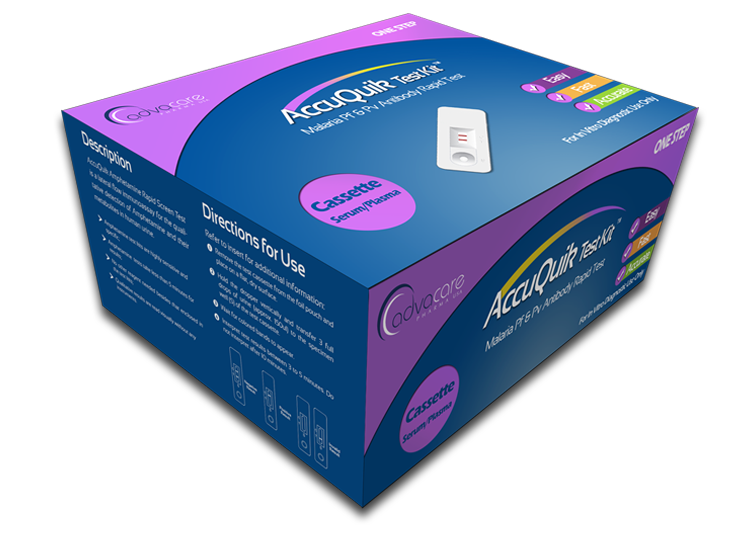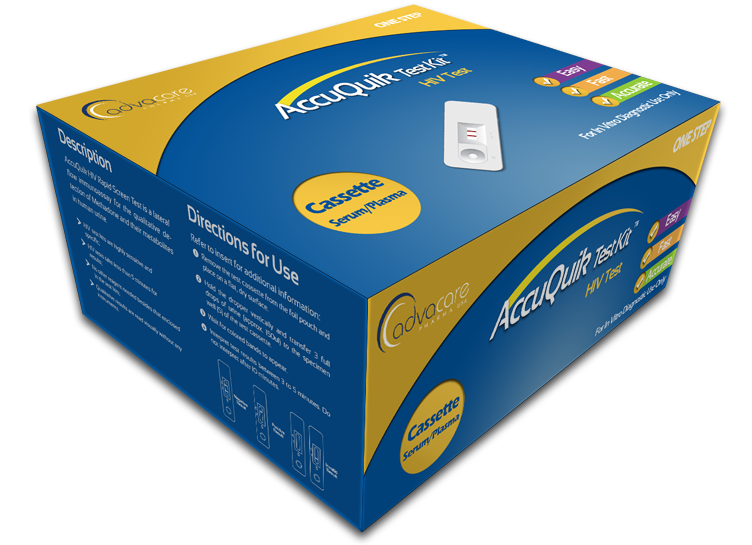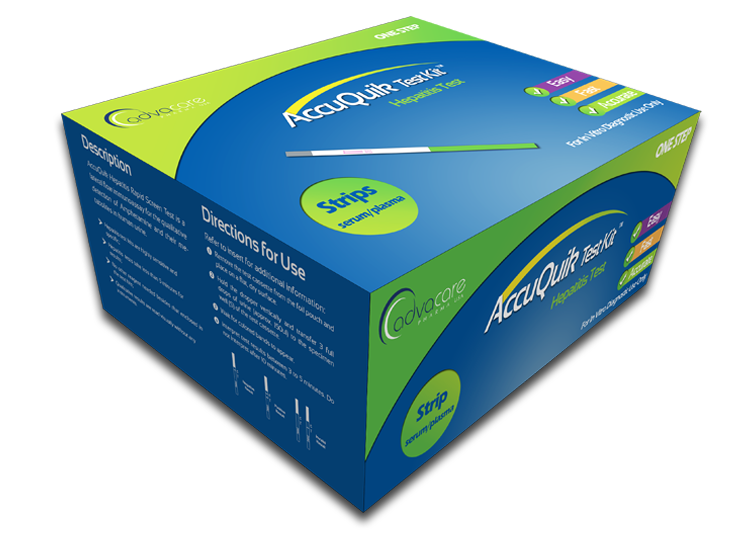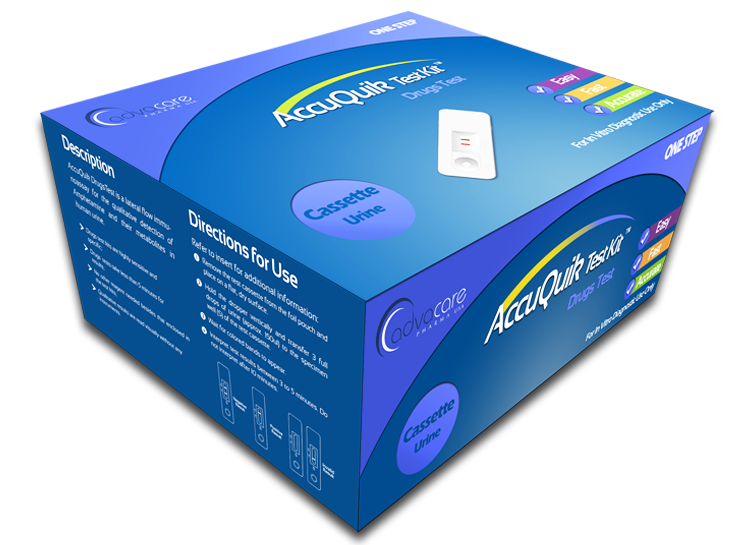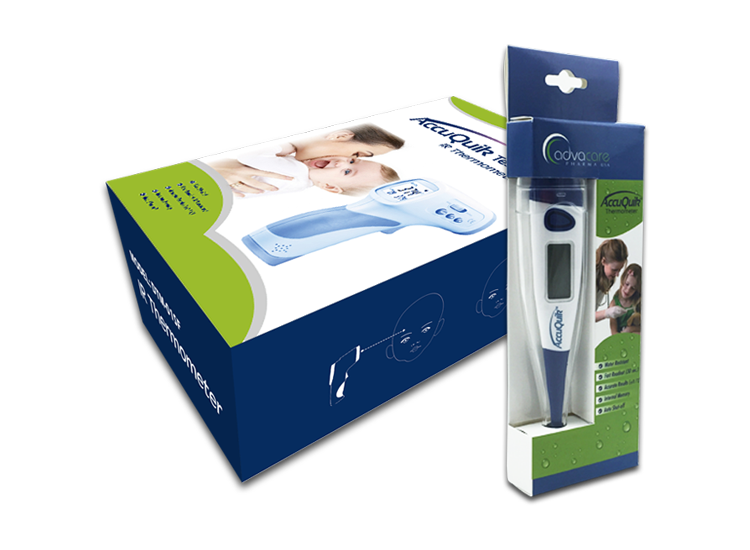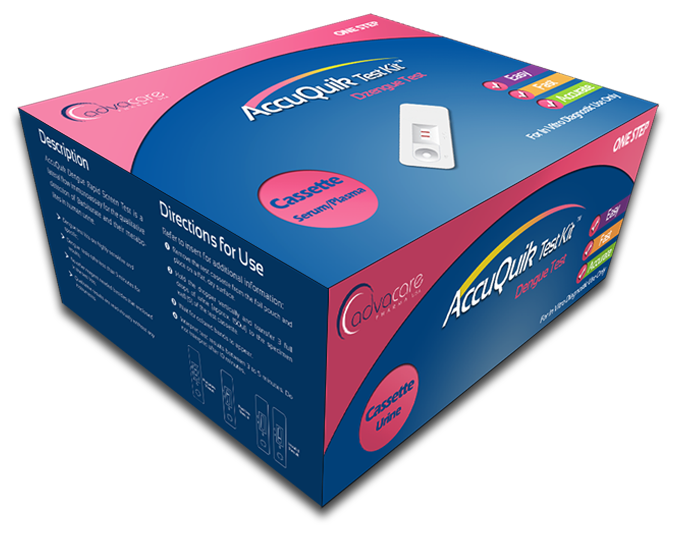More Information about the Rotavirus Test Kit
AccuQuik™ promotes the use of Rotavirus Test Kit.
Rotavirus test kit
Available as cassette
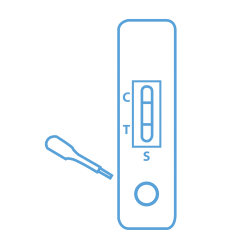
Rotavirus Test Kit diagnostic test detects rotavirus antigen qualitative and quantitatively in feces. The test kit is designed to detect VP6 of the viral capsid in detecting rotavirus infection. The Rotavirus test kit consist of a membrane strip that employs red gold conjugated monoclonal antibodies against antigen VP6 of group A of rotavirus and solid-phase specific rotavirus antibodies. AccuQuikTM Rotavirus Test Kit uses a technology that makes testing of rotavirus infection portable, automatic and quick. The sensitivity and specificity are fully validated and currently fulfill the basic requirements of rapid diagnostic tests. They are available to use as a point of care tests, providing readable results in just 5 to 10 minutes. AccuQuik™ promotes the use of Rotavirus Test Kit.
The Disease
General Information
Rotavirus is the most common cause of diarrhea in infants and children worldwide, leading to over 215,000 deaths yearly. The virus is very contagious, usually entering the body through the mouth and infecting the intestinal lining. It can spread through contaminated surfaces, hands and objects. Transmission can occur after an individual touched a contaminated object or consumed food or drinks with contaminate hands. The symptoms of rotavirus infection usually start about 2 days after exposure. Common symptoms such as vomiting and diarrhea could last 3 to 8 days. Symptoms may lead to loss of appetite and dehydration, which could be dangerous especially for infants and young children. Symptoms of dehydration include: decreased urination, dry mouth and throat, feeling dizzy when standing up, crying with few or no tears, and usual sleepiness or fussiness.
Treatments
There is no specific treatment for rotavirus. The most appropriate actions to take during infection is to stay hydrated and comfortable to quicken recovery. Some ways to do so are: drinking plenty of fluids, eating broth-based soups, taking fluids with electrolytes, eating a diet of bland foods, and avoiding sugary or fatty foods that might worsen the diarrhea. In cases of severe dehydration, hospitalization might be required for the patient to obtain treatment of intravenous (IV) fluids through the veins. Preventative measures can be taken to reduce the risk of rotavirus infection. Hand washing thoroughly and often is important, especially after using the toilet, changing diapers, or helping a child use the toilet. Vaccines are also available to prevent rotavirus infection, but they are only available for children under the age of 6 months.

